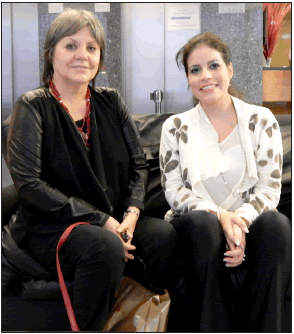Interview with Diamela Eltit: nonconsensual Literature. The Body, Border Spaces and Resistance
Keywords:
Diamela Eltit, body, gender, writingAbstract
Diamela Eltit (1949-). Chilean writer, cofounder, along with Raúl Zurita of the Colectivo Acciones de Arte (CADA, Art Actions Collective), Eltit broke into the literary scene in the 1970s. She became more widely known in the 1980s with the launch of her book of essays, Una milla de cruces sobre el pavimento (1980, A mile of crosses on the pavement). She has published numerous novels, some significant early titles including Lumpérica (1983), Por la Patria (1986), El cuarto mundo (1988) and Los vigilantes (1994). Among her more recent titles are Jamás el fuego nunca (2007), Impuesto a la carne (2010) y Fuerzas especiales (2013). She has earned many awards and distinctions, such as the José Donoso Prize in 2010 and the Altazor Prize in 2014 for her latest novel, Fuerzas especiales. She is also Distinguished Global Professor of creative writing in Spanish at New York University (NYU).
This interview was conducted on May 2, 2014 while the writer was visiting Argentina as part of the “Dialogue of Latin American Writers,” during the 40th International Book Fair in Buenos Aires. Before the meeting, Diamela Eltit kindly provided this interview over coffee at an old Palermo neighborhood hotel.Downloads

Downloads
Additional Files
Published
Issue
Section
License
The authors must adhere to the Creative Commons license called "Attribution - Non-Commercial - Share Alike CC BY-NC-SA", through which it is allowed to copy, reproduce, distribute, publicly communicate the work and generate derivative works, provided and when the original author is cited and acknowledged. However, it is not allowed to use the work or its possible derivative works for commercial purposes. The authors may establish additional agreements for the non-exclusive distribution of the version of the work published in the journal (for example, place it in an institutional repository or publish it in a book), with the acknowledgment of having been first published in this journal.
The publication of contents in this journal does not imply any royalty or charge for the contributors.







.png)

2.png)















_(2).png)






.jpg)
_(1)1.jpg)



.jpg)



